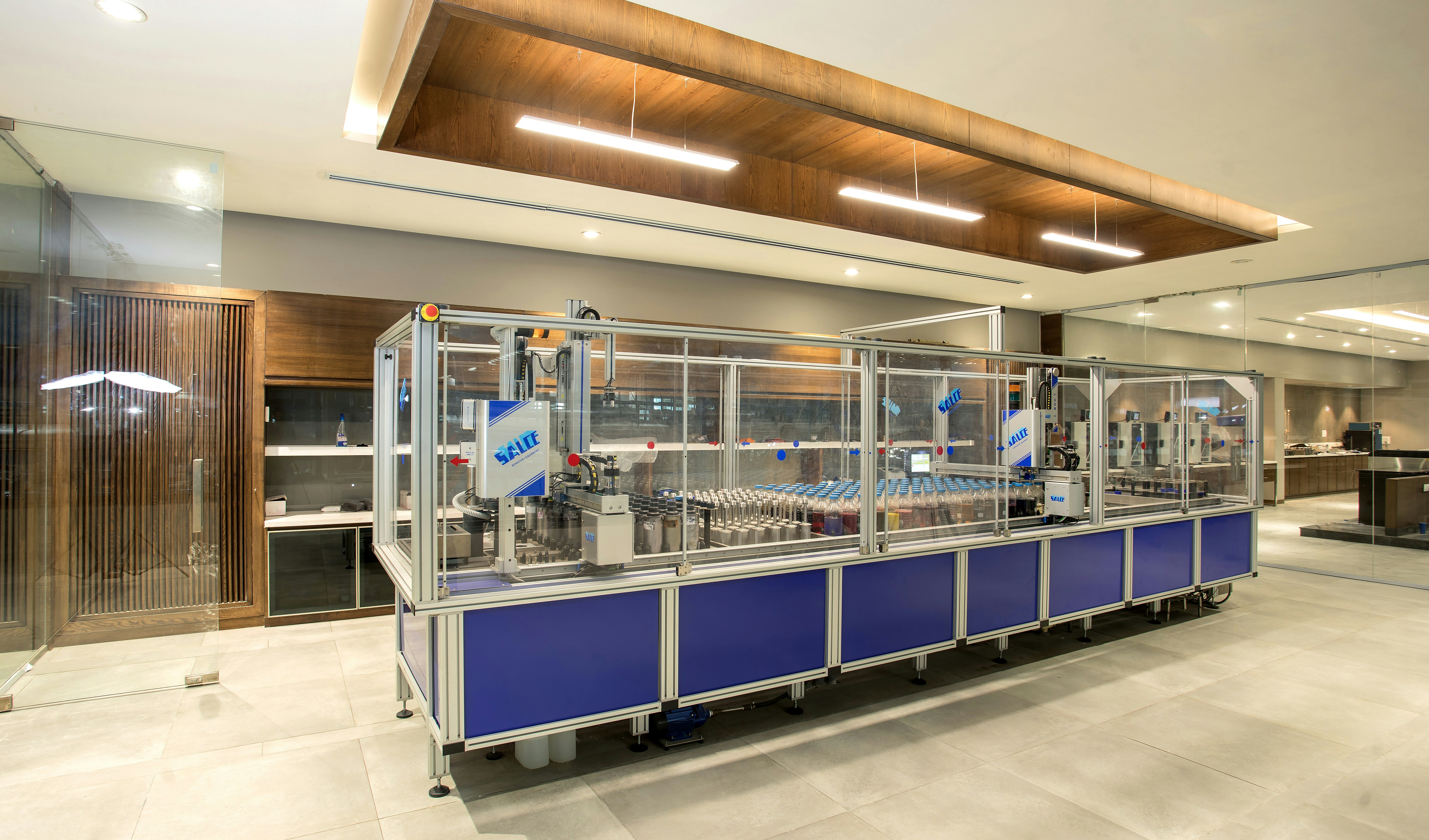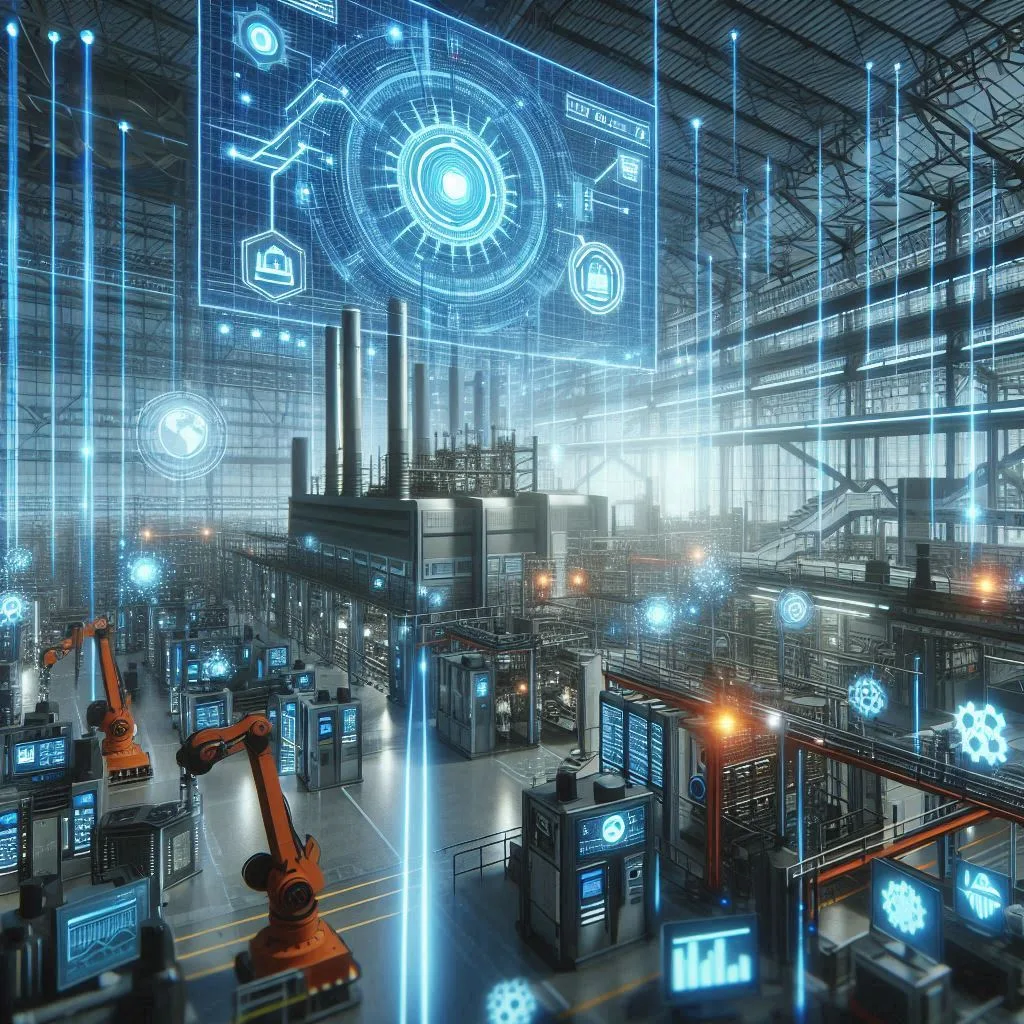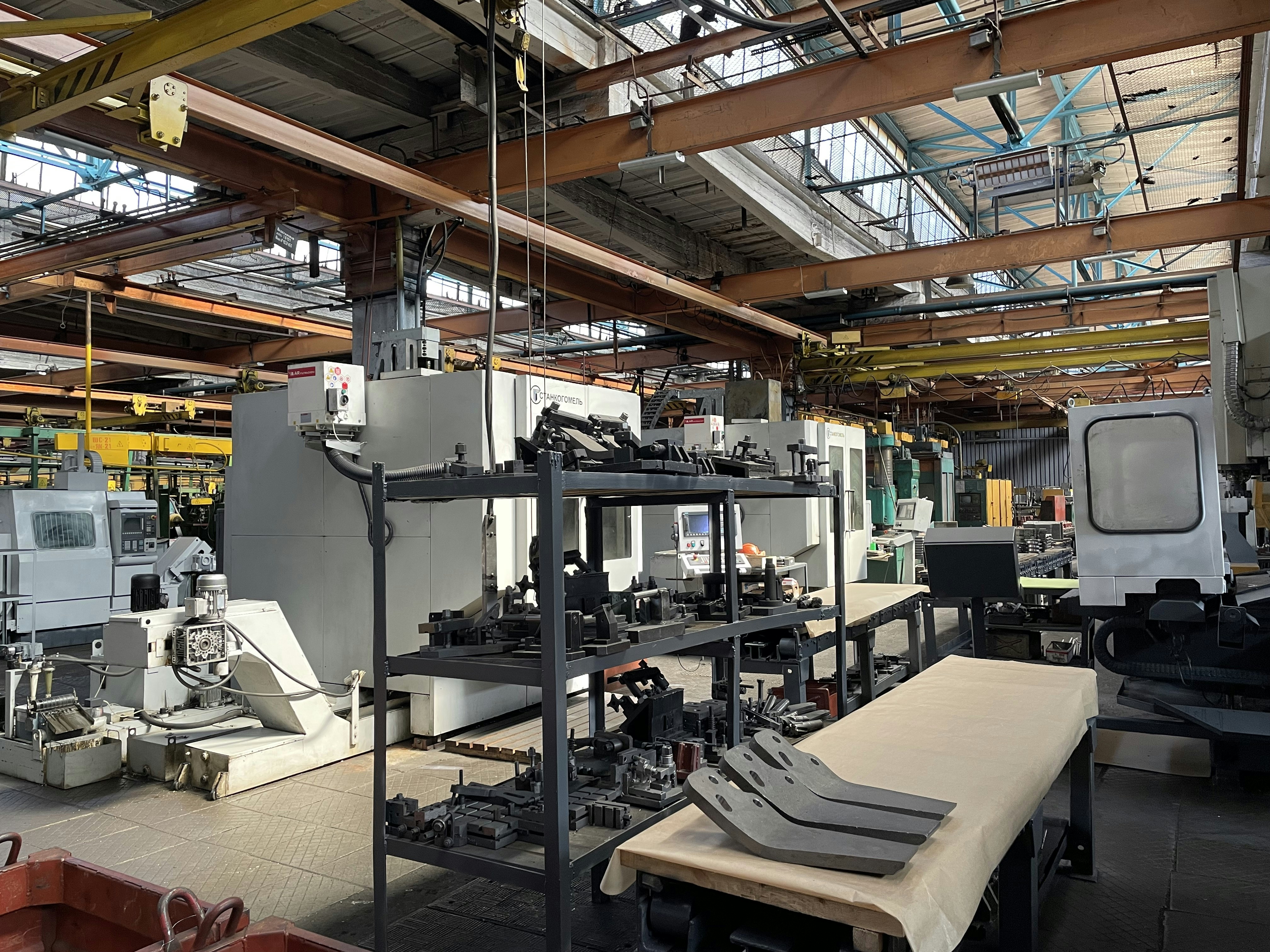Introduction to Smart Manufacturing
Smart manufacturing represents a transformative approach to production that harnesses advanced technologies to enhance operational efficiency and productivity. At its core, smart manufacturing integrates cutting-edge tools such as the Internet of Things (IoT), artificial intelligence (AI), and big data analytics. These technologies work in tandem to streamline processes, providing real-time insights and automated solutions that elevate traditional manufacturing systems.
Key features of smart manufacturing include connectivity, automation, and data-driven decision-making. Through IoT devices, manufacturing equipment is equipped with sensors that continuously gather and transmit data. This connectivity allows for seamless communication among machines, systems, and personnel, enabling organizations to monitor operations remotely and respond promptly to emerging issues. The result is a more agile production environment that can adapt swiftly to market demands.
AI plays a crucial role in smart manufacturing by analyzing vast amounts of data to uncover patterns and drive intelligent automation. With the help of machine learning algorithms, manufacturers can optimize their production schedules, reduce downtime, and enhance product quality. Additionally, predictive analytics empowers businesses to foresee potential disruptions, allowing for proactive measures to be implemented, thus minimizing costly delays.
Another significant advantage of smart manufacturing is its potential to significantly reduce costs. The integration of big data analytics enables manufacturers to pinpoint inefficiencies and waste within their production processes. By streamlining these areas, companies can not only lower their operational expenses but also boost their overall competitiveness in the marketplace.
In summary, smart manufacturing is revolutionizing the industrial landscape, offering numerous benefits through the synergetic application of IoT, AI, and big data analytics. As industries continue to evolve, embracing these transformative technologies will be essential for maintaining a competitive edge.
Overview of the UAE’s Industrial Landscape
The United Arab Emirates (UAE) has emerged as a vital player in the global manufacturing sector, characterized by rapid growth and diversification. Historically, the UAE’s economy relied heavily on oil and gas; however, proactive measures have been implemented to pivot towards a more sustainable and robust industrial framework. The country’s leadership has recognized the essential need for economic transformation, leading to significant investments in various industries.
As of 2023, the UAE’s manufacturing sector contributes approximately 8.5% to the nation’s Gross Domestic Product (GDP), showcasing its importance in the overall economic landscape. This growth is not merely a product of advancing technology but also stems from strategic initiatives designed to encourage entrepreneurship and attract foreign investment. The manufacturing sector is diversified, spanning major industries such as aerospace, automotive, electronics, and food processing, among others.
One of the pivotal elements driving this transformation is the UAE Vision 2021, which aims to enhance the local economy’s competitiveness. By focusing on innovation and technology, the country has laid the groundwork for smart manufacturing, which emphasizes automation, data exchange, and advanced manufacturing technologies. The establishment of free trade zones and intergovernmental collaborations has further catalyzed this transformation.
Moreover, with a strategic geographical location that connects Europe, Asia, and Africa, the UAE positions itself as a crucial logistics and manufacturing hub. This access facilitates seamless trade opportunities, enabling the country to leverage its infrastructure, such as ports and airports, to bolster manufacturing capabilities. A significant proportion of manufacturing businesses in the UAE is adopting digitization, making strides toward Industry 4.0 compliance. Therefore, the UAE’s commitment to diversifying its industrial landscape and embracing technological advancements is making it an attractive hub for both investors and manufacturers alike.
Government Initiatives Supporting Smart Manufacturing
The United Arab Emirates (UAE) has recognized the critical importance of smart manufacturing as a catalyst for economic diversification and technological advancement. Specifically, the UAE Vision 2021 articulates the nation’s ambition to create a competitive knowledge-based economy. This strategic framework emphasizes innovation, research, and advanced technologies, which are essential for the transition towards smart manufacturing. By prioritizing these sectors, the UAE aims to elevate its standing in global markets while ensuring sustainable growth.
Central to this vision is the implementation of the Industry 4.0 strategy, which outlines the transformative impact of emerging technologies—such as the Internet of Things (IoT), artificial intelligence (AI), and robotics—on industrial processes. This strategy not only seeks to enhance productivity but also to create a resilient manufacturing ecosystem within the UAE. The government is committed to facilitating this transformation through various programs and incentives aimed at both local businesses and international investors.
Organizations such as the Ministry of Economy play a pivotal role in driving these initiatives forward. They are tasked with creating a conducive environment for innovation by providing funding, resources, and expertise to manufacturers embracing smart technologies. Additionally, the proliferation of free zones in the UAE serves as a hub for companies engaged in cutting-edge manufacturing practices. These zones offer unique advantages, including tax exemptions, regulatory ease, and world-class infrastructure, effectively positioning the UAE as an attractive destination for smart manufacturing investments.
Furthermore, various partnerships between public and private stakeholders have been established to foster collaboration in research and development. By leveraging these synergies, the UAE is better equipped to accelerate its transition to smart manufacturing while aligning with global standards and practices. As these initiatives unfold, it is anticipated that the UAE will emerge as a significant player in the smart manufacturing landscape, driving innovation and economic growth across the region.
The Role of Technology in Transforming Manufacturing
The evolution of manufacturing in the United Arab Emirates (UAE) is fundamentally driven by the integration of advanced technologies. The shift towards smart manufacturing is increasingly marked by the implementation of the Internet of Things (IoT), artificial intelligence (AI), robotics, and advanced data analytics. These technologies are revolutionizing production processes, enhancing efficiency, and enabling manufacturers to achieve unprecedented levels of operational excellence.
The Internet of Things (IoT) plays a crucial role in creating interconnected manufacturing environments. It facilitates real-time monitoring and control of equipment, allowing businesses to optimize their operational processes. For instance, IoT sensors can be installed on machines to track performance and predict maintenance needs, reducing downtime and operational costs. Companies like Emirates Global Aluminium have leveraged IoT technology to enhance their production line, leading to significant improvements in both efficiency and productivity.
Artificial intelligence (AI) complements these IoT systems by enabling manufacturers to analyze vast amounts of data swiftly. AI algorithms can identify patterns and predict trends, which assists businesses in decision-making. An example is the implementation of AI in forecasting demand, which helps companies like Dubai Investments to align their production schedules accordingly, thus minimizing waste and maximizing resource allocation.
Moreover, robotics has become indispensable in the modern manufacturing landscape. Automated robotic systems perform repetitive tasks with precision, freeing human workers to focus on more complex roles. Local firms, such as the Al Futtaim Group, have adopted robotic solutions in their warehouses, vastly improving inventory management and order fulfillment efficiency.
Advanced data analytics further augments these technologies by providing actionable insights. By harnessing data from various sources, manufacturers can fine-tune their operations and drive continuous improvement. With these technological advancements at the forefront, the UAE is solidifying its position as a leading hub for smart manufacturing in the region.
Case Studies of Smart Manufacturing in the UAE
The integration of smart manufacturing practices within the UAE’s industrial landscape has been marked by pivotal case studies that illustrate not only the potential of these technologies but also the challenges and solutions encountered by various companies. One such example is depicted in the journey of Emirates Global Aluminium (EGA), which adopted advanced automation and data analytics to reshape its operational frameworks.
EGA confronted significant challenges associated with energy consumption and production efficiency. By implementing Internet of Things (IoT) technologies in their operations, the company established a real-time monitoring system that facilitated improved decision-making processes. This initiative resulted in a remarkable 10% reduction in energy usage and an enhancement in overall productivity. The integration of smart manufacturing not only enabled EGA to minimize wastage but also positioned the company as a leader in sustainable aluminum production within the region.
Another notable case study is that of DP World, which transformed its logistics and supply chain operations through smart manufacturing solutions. Facing operational delays and inefficiencies, DP World leveraged predictive analytics and automated equipment to streamline port operations. The introduction of smart sensors and AI technologies automated cargo handling processes, leading to a 25% increase in operational efficiency at their Jebel Ali Port facility. This capability allows the company to adapt swiftly to fluctuating demands, highlighting the crucial role of smart manufacturing in enabling agility in processes.
Furthermore, the electronics manufacturing sector has also witnessed substantial advancements owing to the adoption of smart manufacturing. Companies in this sector, such as “RAK Electronics,” have successfully implemented smart factory concepts that incorporate robotics and IoT. The challenges they faced included adapting their workforce and reconfiguring existing production lines. However, with targeted training and technology investments, these companies have achieved significant gains in production flexibility and quality control.
Through these examples, it is evident that UAE-based companies are not only embracing smart manufacturing but are also redefining industry standards by overcoming challenges with innovative solutions. The outcomes achieved exemplify the transformative impacts these technologies can have on operational efficiency, sustainability, and overall competitiveness in the global market.
Investment Opportunities in Smart Manufacturing
The smart manufacturing sector in the UAE presents a multitude of investment opportunities that are attractive to both local and international stakeholders. As the nation strives towards becoming a global leader in smart technology and innovation, it has developed a conducive environment for foreign investment. The government’s dedication to pushing the boundaries of industry 4.0 includes offering various incentives, such as tax exemptions, grants, and the establishment of free zones dedicated specifically to technology and manufacturing. Such measures not only foster local entrepreneurship but also draw international companies seeking to capitalize on the region’s market potential.
Venture capital has emerged as a significant driver of growth in the smart manufacturing landscape. Numerous technology startups are entering the sector, focusing on cutting-edge solutions such as robotics, the Internet of Things (IoT), and artificial intelligence (AI). These innovations are crucial for enhancing operational efficiency and reducing production costs. As a result of this burgeoning ecosystem, venture capitalists are increasingly inclined to invest in these startups, recognizing their potential for scalability and market disruption. Platforms and incubators throughout the UAE are supporting these endeavors, creating a fertile ground for ideas to grow and flourish.
Furthermore, partnerships between local businesses and international players are instrumental in accelerating the adoption of smart manufacturing solutions. Collaborations often lead to knowledge transfer, where local firms benefit from international expertise in technology implementations. Such alliances not only strengthen the local economy but also create a shared vision for smart manufacturing standards and practices. This collaborative spirit is indicative of a growing trend where mixed-ownership models are favored, allowing for shared responsibilities and risks among partners. The smart manufacturing sector in the UAE thus stands out as a promising area for real investment opportunities, leveraging both local insights and global competency.
Skills Development and Workforce Challenges
The transition towards smart manufacturing in the United Arab Emirates (UAE) necessitates a workforce that is not only skilled but also adaptable to the rapid changes brought about by technological advancements. As the industry evolves, the importance of educational initiatives and training programs becomes paramount. Institutions and businesses alike are recognizing the critical need to develop a talent pool that is equipped to meet the demands of a digital manufacturing environment.
To address this requirement, educational institutions across the UAE have begun to tailor their curricula to integrate competencies relevant to smart manufacturing. This includes fields such as robotics, artificial intelligence, data analytics, and Internet of Things (IoT) technologies. Partnerships between educational institutions and the manufacturing sector are being established to ensure that students receive an education grounded in real-world applications. These collaborations often involve internships, apprenticeships, and hands-on workshops that allow students to gain practical experience while also honing their technical skills.
Despite these efforts, the challenges of skills development and workforce readiness remain significant. While many graduates are entering the job market with theoretical knowledge, there often exists a gap between this knowledge and the practical skills required by employers. Moreover, the fast pace of technological advancement can make it difficult for existing workers to keep their skills current, leading to further discrepancies in workforce capabilities. Therefore, ongoing professional development and continuous learning initiatives are necessary to bridge these gaps.
Addressing these challenges requires a concerted effort from all stakeholders, including government bodies, educational institutions, and industries. By working together, they can implement initiatives that ensure a steady pipeline of skilled workers, consequently positioning the UAE as a leading hub for smart manufacturing on a global scale.
Environmental Sustainability and Smart Manufacturing
The intersection of environmental sustainability and smart manufacturing is increasingly significant in the context of the United Arab Emirates (UAE), as the nation commits to reducing its carbon footprint and fostering a more sustainable industrial landscape. Smart manufacturing incorporates advanced technologies such as the Internet of Things (IoT), artificial intelligence (AI), and big data analytics to enhance operational efficiencies while simultaneously promoting environmental stewardship. This innovative approach allows manufacturers to optimize their processes, thereby reducing waste and minimizing energy consumption.
One of the primary benefits of smart manufacturing lies in its capacity to monitor and analyze resource utilization in real time. For instance, IoT-enabled devices can track materials and energy use, ensuring that those resources are deployed more efficiently. By utilizing predictive analytics, manufacturers can foresee potential inefficiencies or malfunctions, allowing them to make timely adjustments that can lead to significant reductions in waste. Consequently, these improvements not only promote sustainability but also enhance a company’s bottom line, making it a win-win scenario.
The UAE’s commitment to sustainability is evident in its national strategies, such as the UAE Vision 2021 and the Green Economy for Sustainable Development initiative. These frameworks emphasize the importance of adopting smart technologies to drive sustainable growth within the manufacturing sector. Furthermore, the UAE is increasingly investing in renewable energy sources like solar and wind power, further aligning its industrial activities with sustainable practices. Through initiatives that integrate smart manufacturing and environmental sustainability, the UAE aims to lead the way in demonstrating how advanced technological solutions can facilitate a more responsible and eco-friendly manufacturing environment.
In conclusion, the nexus between smart manufacturing and environmental sustainability represents an essential focus for the UAE. As the country strides towards a greener future, the adoption of smart technologies will be instrumental in achieving its sustainability goals while simultaneously enhancing the competitiveness of its manufacturing sector.
Future Prospects for Smart Manufacturing in the UAE
The United Arab Emirates (UAE) is rapidly positioning itself as a global leader in smart manufacturing, driven by robust government support and a clear vision for the future. With the rapid evolution of Industry 4.0, the integration of Internet of Things (IoT) technologies, artificial intelligence (AI), and data analytics is becoming increasingly prevalent within the manufacturing sector. These technologies promise to enhance operational efficiency, product quality, and supply chain transparency, resulting in a more agile manufacturing landscape.
One of the foremost trends influencing the future of smart manufacturing in the UAE is the accelerated adoption of automation. Machine learning and advanced robotics are poised to revolutionize traditional manufacturing processes, enabling facilities to operate with minimal human intervention while maintaining high levels of precision. This shift towards automation not only increases productivity but also reduces operational costs, positioning UAE manufacturers competitively on a global scale.
Furthermore, as sustainability becomes a critical factor across industries, smart manufacturing in the UAE is expected to evolve towards greener practices. The integration of renewable energy sources and the application of energy-efficient technologies will play a significant role in minimizing the environmental impact of manufacturing operations. Innovations such as circular manufacturing, which emphasizes resource conservation and waste reduction, will gain traction, aligning with the UAE’s vision of sustainable development.
Yet, as the sector experiences growth, it must also navigate several challenges. Ensuring a skilled workforce equipped to handle advanced technologies poses a significant hurdle. The UAE must continue to invest in education and training programs aimed at cultivating talent that can thrive in this new manufacturing paradigm. Moreover, cybersecurity is a growing concern, as increased connectivity introduces vulnerabilities to existing systems.
In conclusion, the future landscape of smart manufacturing in the UAE is filled with opportunities and challenges. By embracing emerging technologies and fostering a culture of innovation, the UAE can significantly enhance its economic prospects and global competitiveness in the manufacturing sector.


